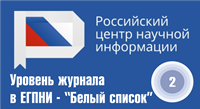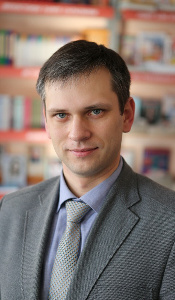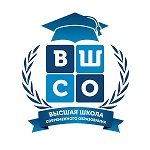ОБРАЗОВАТЕЛЬНО-ПРОФЕССИОНАЛЬНАЯ ТРАЕКТОРИЯ «КОЛЛЕДЖ – ВУЗ (ОЧНАЯ ФОРМА)» СТУДЕНТОВ ПЕДАГОГИЧЕСКИХ НАПРАВЛЕНИЙ ПОДГОТОВКИ
Аннотация
Обоснование. С увеличением количества выпускников школ, поступающих в учреждения системы СПО, и ростом вариативности образовательно-профессиональных траекторий молодежи в целом, возрастает актуальность изучения студентов, пришедших в вуз после окончания колледжа. Малоизученным остается вопрос о причинах поступления таких студентов на очную форму обучения, возможностях их профессионального развития.
Цель – изучение транзитной траектории студентов вуза – выпускников колледжей, обучающихся на педагогических программах по очной форме, как особенности их образовательно-профессионального развития.
Материалы и методы. Анализ статистики приема в Смоленский государственный университет позволил выявить показатели поступления выпускников СПО и обосновать выборку для качественного метода – интервьюирования, в котором приняли участие студенты-очники 1-4 курсов, обучающиеся на педагогических программах. Был проведен анализ 12 структурированных интервью, характеризующих образовательные траектории студентов – выпускников колледжей педагогических и непедагогических специальностей.
Результаты. Транзитная образовательная траектория была запланированной у всех опрошенных, но ее причины были обусловлены факторами разного характера: территориальными или личными. Две третьи опрошенных поступили на педагогические программы уже имея педагогическое образование, что в целом характеризует осознанность профессионального выбора и является положительной предпосылкой их образовательно-профессионального развития. Смена направления подготовки на педагогическое обусловлена положительным отношением к данной сфере, но характеризует студентов, как испытывающих трудности в профессиональном самоопределении. Выбор очной формы обучения обусловлен как внутренними мотивами (получить больше знаний и стать квалифицированным профессионалом), так и экономическими и социальными причинами.
Скачивания
Литература
Список литературы
Александров Д.А., Тенишева К.А., Савельева С.С. Мобильность без рисков: образовательный путь «в университет через колледж» // Вопросы образования. 2015. № 3. С. 66-91. https://doi.org/10.17323/1814-9545-2015-3-66-91
Выпускники среднего профессионального образования на российском рынке труда: докл. к XXIV Ясинской (Апрельской) междунар. науч. конф. по проблемам развития экономики и общества, Москва, 2023 г. / науч. ред. С.Ю. Рощин. М.: НИУ ВШЭ, 2023. 148 с.
Капелюшников Р.И. Отдача от образования в России: ниже некуда? // Вопросы экономики. 2021. № 8. С. 37-68. https://doi.org/10.32609/0042-8736-2021-8-37-68.
Константиновский Д.Л., Попова Е.С. Российское среднее профессиональное образование: востребованность и специфика выбора // Социологические исследования. 2018. № 3. С. 34-44. https://doi.org/10.7868/s0132162518030030
Коротких Е.В. Образовательно-карьерные траектории «транзитных» студентов: «колледж – вуз» // Экономическая социология. 2024. Т. 25. № 2. С. 88-113. https://doi.org/10.17323/1726-3247-2024-2-88-119
Кремень Ф.М., Кремень С.А. Особенности карьерных ориентаций студентов - будущих педагогов заочной формы обучения // Мир психологии. 2023. Т. 4(115). С. 276-285. https://doi.org/10.51944/20738528_2023_4_276
Малиновский С.С., Шибанова Е.Ю. Региональная дифференциация доступности высшего образования в России. M.: НИУ ВШЭ, 2020. 68 с.
Мальцева В.А., Сальникова И.Е., Шабалин А.И. Вместо университета – в колледж: что приводит успевающих одиннадцатиклассников в СПО? // Мониторинг общественного мнения: экономические и социальные перемены. 2022. № 3. С. 45-66. https://doi.org/10.14515/monitoring.2022.3.2090
Мальцева В.А., Шабалин А.И. Не-обходной маневр, или Бум спроса на среднее профессиональное образование в России // Вопросы образования. 2021. № 2. С. 10–42. https://doi.org/10.17323/1814-9545-2021-2-10-42
Павленко Е.С. Культурные паттерны образовательных решений российской молодежи на примере поступления в колледж // Вопросы образования. 2023. № 4. P. 179–206. https://doi.org/10.17323/vo-2023-17219
Среднее профессиональное образование в России: ресурс для развития экономики и формирования человеческого капитала: аналитический доклад / Ф.Ф. Дудырев, К.В. Анисимова, И.А. Артемьев и др. М.: НИУ ВШЭ, 2022. 100 с.
Татьяна Голикова: более 60 % выпускников девятых классов выбирают СПО. Сайт Российского Союза ректоров (5.04.2024). URL: https://rsr-online.ru/news/2024/4/5/tatyana-golikova-bolee-60-vypusknikov-devyatyh-klassov-vybirayut-spo/ (дата обращения 12.07.2024).
Хавенсон Т.Е., Чиркина Т.А. Эффективно поддерживаемое неравенство. Выбор образовательной траектории после 11‑го класса школы в России // Экономическая социология. 2018. Т. 19. № 5. С. 66–89. https://doi.org/10.17323/1726-3247-2018-5-66-89
Chen W., Lin Y., Yu X., Zheng W., Wu S., Huang M., Chen W., Zhou S. The Relationship between Bicultural Identity Integration, Self-Esteem, Academic Resilience, Interaction Anxiousness, and School Belonging among University Students with Vocational Qualifications // International Journal of Environmental Research and Public Health. 2022. Vol. 19. No. 6. P. 1-16. https://doi.org/10.3390/ijerph19063632
Cunninghame I., Costello D., Trinidad S. Issues and trends for low socioeconomic status background and first-in-family students. In S. Trinidad & J. Phillimore (Eds.), Facilitating student equity in Australian higher education. NCSEHE, 2016. P. 4-13.
Geoghegan A. Changing career to teaching? The influential factors which motivate Irish career change teachers to choose teaching as a new career // Irish Educational Studies. 2023. Vol. 42. No. 4. P. 805–824. https://doi.org/10.1080/03323315.2023.2260809
Gorard S., See B., Davies P. The impact of attitudes and aspirations on educational attainment and participation. York: Joseph Rowntree Foundation, 2012. 103 p.
Haltia N., Isopahkala-Bouret U., Jauhiainen A. The vocational route to higher education in Finland: Students’ backgrounds, choices and study experiences // European Educational Research Journal. 2022. Vol. 21. No. 3. P. 541-558. https://doi.org/10.1177/1474904121996265
Hayward G., Hoelscher M. The Use of Large-Scale Administrative Data Sets to Monitor Progression from Vocational Education and Training into Higher Education in the UK: possibilities and methodological challenges // Research in Comparative and International Education. 2011. Vol. 6. No. 3. P. 316-329.
Katartzi E., Hayward G. Transitions to higher education: the case of students with vocational background // Studies in Higher Education. 2019. Vol. 45. No. 12. P. 2371–2381. https://doi.org/10.1080/03075079.2019.1610866
Li I.W., Jackson D., Carroll D.R. Influence of equity group status and entry pathway on academic outcomes in higher education // Journal of Higher Education Policy and Management. 2023. Vol. 45. No. 2. P. 140–159. https://doi.org/10.1080/1360080X.2023.2180163
Walther A., Plug, W. Transitions from school to work in Europe: destandardization and policy trends // New directions for child and adolescent development. 2006. No. 113. P. 77-90.
Yang D.F., Catterall J., Davis J. Supporting new students from vocational education and training: Finding a reusable solution to address recurring learning difficulties in e-learning // Australasian Journal of Educational Technology. 2013. Vol. 29. No. 5. P. 640-650.
References
Aleksandrov D.A., Tenisheva K.A., Savelyeva S.S. “No-Risk Mobility: Through College to University”. Voprosy obrazovaniya [Educational Studies Moscow], 2015, no. 3, pp. 66-91. https://doi.org/10.17323/1814-9545-2015-3-66-91
Graduates of secondary vocational education in the Russian labor market: report to the XXIV Yasiskaya (April) international scientific conf. on the problems of economic and social development, Moscow, 2023 / scientific editor S.Yu. Roshchin. Moscow: HSE University Publ., 2023, 148 p.
Kapelyushnikov R.I. Returns to education in Russia: Nowhere below? Voprosy ekonomiki [Economic issues], 2021, no. 8, pp. 37-68. https://doi.org/10.32609/0042-8736-2021-8-37-68
Konstantinovsky D.L., Popova E.S. Russian secondary professional education: demand and specificity of choice. Sotsiologicheskie issledovaniya [Sociological Studies], 2018, no. 3, pp. 34-44. https://doi.org/10.7868/s0132162518030030
Korotkikh E.V. Educational and career trajectories of "transit" students: "college - university". Ekonomicheskaya Sotsiologiya [Journal of Economic Sociology], 2024, vol. 25, no. 2, pp. 88-119. https://doi.org/10.17323/1726-3247-2024-2-88-119
Kremen F.M., Kremen S.A. Features of career orientations of students - future teachers of correspondence courses. Mir psikhologii [The World of psychology], 2023, vol. 4(115), pp. 276-285. https://doi.org/10.51944/20738528_2023_4_276
Malinovsky S.S., Shibanova E.Yu. Regional differentiation of the accessibility of higher education in Russia. Moscow: HSE University Publ., 2020, 68 p.
Maltseva V.A., Salnikova I.E., Shabalin A.I. Vocational School Instead of a University: What Brings Successful Eleventh-Graders to Vocational Education? Monitoring obshchestvennogo mneniya: ekonomicheskie i sotsial'nye peremeny [Monitoring of Public Opinion: Economic and Social Changes], 2022, no. 3, pp. 45-66. https://doi.org/10.14515/monitoring.2022.3.2090
Maltseva V.A., Shabalin A.I. The Non-Bypass Trajectory, or The Boom in Demand for TVET in Russia. Voprosy obrazovaniya [Educational Studies Moscow], 2021, no. 2, pp. 10-42. https://doi.org/10.17323/1814-9545-2021-2-10-42
Pavlenko E.S. Russian Youth Educational Choice Cultural Patterns: The Case of VET Choice. Voprosy obrazovaniya [Educational Studies Moscow], 2023, no. 4, pp. 179-206. https://doi.org/10.17323/vo-2023-17219
Secondary vocational education in Russia: a resource for economic development and human capital formation: analytical report / F.F. Dudyrev, K.V. Anisimov, I.A. Artemyev, et al. Moscow: HSE University Publ., 2022, 100 p.
Tatyana Golikova: more than 60% of ninth-grade graduates choose secondary vocational education. Website of the Russian Union of Rectors (April 5, 2024). URL: https://rsr-online.ru/news/2024/4/5/tatyana-golikova-bolee-60-vypusknikov-devyatyh-klassov-vybirayut-spo/
Khavenson T.E., Chirkina T.A. Effectively Maintained Inequality. The Choice of Postsecondary Educational Trajectory in Russia. Ekonomicheskaya Sotsiologiya [Journal of Economic Sociology], 2018, vol. 19, no. 5, pp. 66-89. https://doi.org/10.17323/1726-3247-2018-5-66-89
Chen W., Lin Y., Yu X., Zheng W., Wu S., Huang M., Chen W., Zhou S. The Relationship between Bicultural Identity Integration, Self-Esteem, Academic Resilience, Interaction Anxiousness, and School Belonging among University Students with Vocational Qualifications. International Journal of Environmental Research and Public Health, 2022, vol. 19, no. 6, pp. 1-16. https://doi.org/10.3390/ijerph19063632
Cunninghame I., Costello D., Trinidad S. Issues and trends for low socioeconomic status background and first-in-family students. In S. Trinidad & J. Phillimore (Eds.), Facilitating student equity in Australian higher education. NCSEHE, 2016, pp. 4-13.
Geoghegan A. Changing career to teaching? The influential factors which motivate Irish career change teachers to choose teaching as a new career. Irish Educational Studies, 2023, vol. 42, no. 4, pp. 805–824. https://doi.org/10.1080/03323315.2023.2260809
Gorard S., See B., Davies P. The impact of attitudes and aspirations on educational attainment and participation. York: Joseph Rowntree Foundation, 2012, 103 p.
Haltia N., Isopahkala-Bouret U., Jauhiainen A. The vocational route to higher education in Finland: Students’ backgrounds, choices and study experiences. European Educational Research Journal, 2022, vol. 21, no. 3, pp. 541-558. https://doi.org/10.1177/1474904121996265
Hayward G., Hoelscher M. The Use of Large-Scale Administrative Data Sets to Monitor Progression from Vocational Education and Training into Higher Education in the UK: possibilities and methodological challenges. Research in Comparative and International Education, 2011, vol. 6, no. 3, pp. 316-329.
Katartzi E., Hayward G. Transitions to higher education: the case of students with vocational background. Studies in Higher Education, 2019, vol. 45, no. 12, pp. 2371-2381. https://doi.org/10.1080/03075079.2019.1610866
Li I.W., Jackson D., Carroll D.R. Influence of equity group status and entry pathway on academic outcomes in higher education. Journal of Higher Education Policy and Management, 2023, vol. 45, no. 2, pp. 140-159. https://doi.org/10.1080/1360080X.2023.2180163
Walther A., Plug, W. Transitions from school to work in Europe: destandardization and policy trends. New directions for child and adolescent development, 2006, no. 113, pp. 77-90.
Yang D.F., Catterall J., Davis J. Supporting new students from vocational education and training: Finding a reusable solution to address recurring learning difficulties in e-learning. Australasian Journal of Educational Technology, 2013, vol. 29, no. 5, pp. 640-650.
Просмотров аннотации: 313
Copyright (c) 2024 Sergei A. Kremen, Faina M. Kremen

Это произведение доступно по лицензии Creative Commons «Attribution-NonCommercial-NoDerivatives» («Атрибуция — Некоммерческое использование — Без производных произведений») 4.0 Всемирная.





































